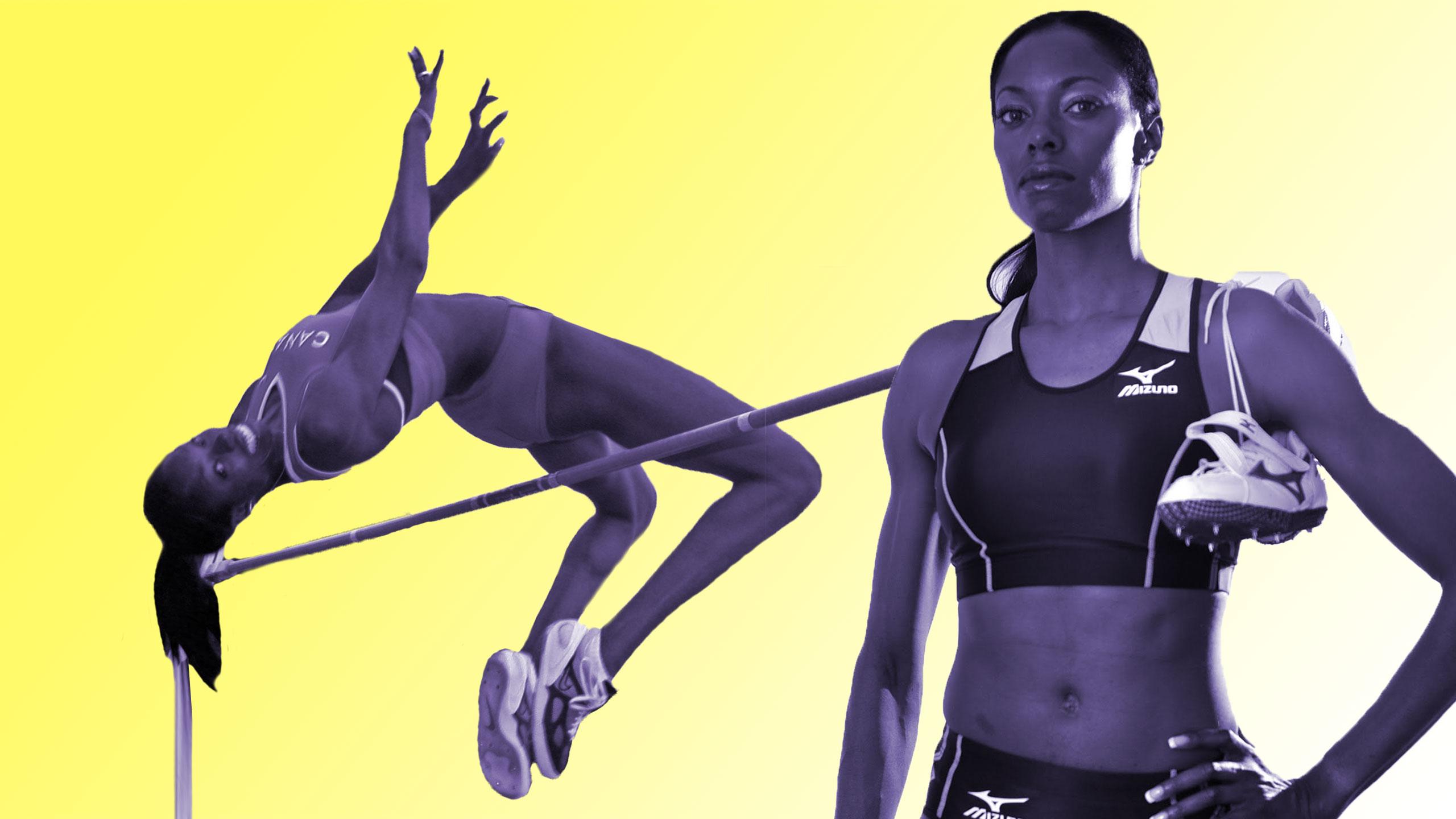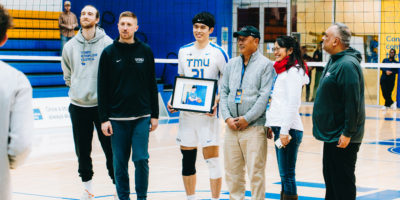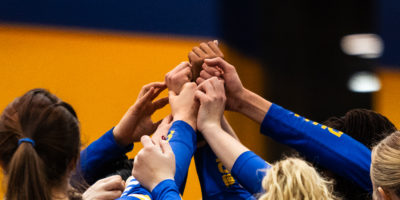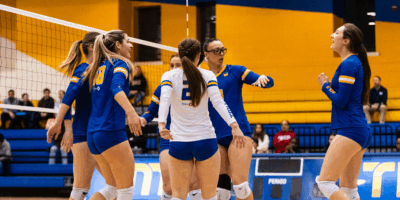By Jacqueline Matskiv
Nicole Forrester is an Olympian and an eight-time Canadian champion in the women’s high jump. Once ranking among the top 10 competitors in the world, Forrester has represented the national team on 20 occasions. During her Olympic peak, she managed to capture two Pan Am Games medals—grabbing a bronze in 1999 and a silver in 2007. Despite those feats, Forrester saved her best stuff for the Commonwealth Games, winning two medals, including a gold, in 2010. These performances led to her being selected in October to be part of the first Commonwealth Games Federation Athletes Advisory Commission—a council created to engage and represent athlete views and grow their profile.
Forrester holds a PhD in sport psychology, and is the founder of Optimal Zone Inc., a consulting firm designed to help people achieve their high performance goals. In September, Forrester became an assistant professor with Ryerson’s RTA School of Media. The Eyeopener talked to Forrester about her experiences, biggest moments, and the major turning points in her life.
The Eyeopener: You took up track and field at age 17. Now, you hold athletic distinctions that athletes only dream of achieving. How does one become an Olympic athlete?
Forrester: It’s like climbing a set of stairs. In the case of the Olympic Games, the CN Tower staircase. When you finally arrive at your destination, it’s not something that feels like a surprise. It’s an achievement built upon countless failures, and an unshakeable belief that you can get there. When I got there, it felt like, “Finally! Yes! Damn right!”
The thing that sucks about the Olympics is that for every athlete who qualifies, there’s another who doesn’t. [One] who just missed the cut. My best friend is a U.S. champion, and has come in the top 10 at the New York Marathon. She’s a phenomenal athlete, but she’s never run in the Olympics. At trials, something obscure happens and she seems to always miss it by one place. So her career is punctuated by the question,“Have you ever gone to the Olympics?” If the answer is “no,” the perception is that you’re not as good as someone who has.
Was there a specific turning point in your career?
The Commonwealth Games had always been a games I wanted to win. I’d gone before and won bronze (Manchester, 2002), and told myself I’d come back and win the next round. In 2006, I went to Melbourne, and was favoured to win. My parents came out to support me, and I had a lot of media attention from the CBC. I came last. I have no idea what happened. I failed all three attempts to make my first height. I felt devastated, embarrassed, ashamed, and it was the best thing that ever happened to me.
I approached the rest of the season with the mindset that I had nothing to lose. I became an athlete who was competing with no fears. My world ranking starting going way up. The following year I ranked within the top 10 in the world. I went back to compete in New Delhi, India, in 2010. I was really ill at the time. I had 20 brain lesions. I couldn’t really feel the right side of my body. But I was so committed to winning the Commonwealth Games, more so after 2006, that I competed anyways. I have no idea how, but I pulled off first place.
What was your transition from being a full-time athlete to being a full-time academic like? Was retiring hard on you psychologically?
I feel like I’m an anomaly to that question. When I was training for the Olympics, I was also a student. That worked well because it balanced me, ensuring I wasn’t over-consumed by my sport. When you’re a professional athlete, that is your dream job. You’re doing what it is that you love, so everything else after that doesn’t compare. Many people feel like they have to find a new passion. For me, I always had another area of interest, and that was academics. Yet to this day, I still have dreams in which I’m competing. I wake up from them and think, “I’m not an athlete anymore!”
What kind of work have you done in media? What does your research focus on?
The relationship between media and sports is a very powerful one. That is something I’ve known since my days as an athlete. My media work overlaps with my studies in sport psychology, which were prompted by the questions I faced when I was an athlete, particularly the question of how to achieve my personal best.
When I worked with Fox Sports, and later with CBC, my aim was to educate the public about the psychosocial factors at play in an athlete’s performance. When I’m working with media students, I’m trying to help them understand how their work can either impede or support an athlete’s performance. Research-wise, I’m currently exploring how athletes can use social media to elevate their performances and personal branding. I’ll be looking at this issue throughout the 2018 Winter Olympics in Pyeongchang.
You’ve recently been selected to be on the Athlete Advisory Commission for the Commonwealth Games Federation. What does that mean?
This is a new initiative by the Commonwealth Games Federation. They’ve essentially created a council of athletes that breaks up the world into continents. In my role with the advisory commission, I’m representing the Americas and the athletes of this region. The aim of the commission is to ensure that the Games are athlete-centred, which is actually another concept I’m researching.
The term “athlete-centred” gets used a lot, but it hasn’t been defined in a way we can measure. The general idea is this: if an event is athlete-centred, it puts the needs of the athletes first, considering things like the size of elevators to the best location of the cafeteria. This commission has a direct connection to the executive board (the decision-makers), and brings such concerns to their attention.
What’s next for you?
Good question! Certainly getting situated within this program. Ryerson is special because of its close ties with industry, which present a great opportunity for the wealth of knowledge we’re developing here to get implemented into the “real world.” I’m working on emphasizing my strengths in the classroom, particularly within the social science element of media. I want to cultivate in my students an understanding of how to interact with athletes so that both parties can do their work freely and effectively.
This interview has been edited for length and clarity.












Leave a Reply